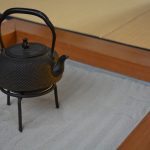
目次
What is the tyatta/ちゃった in Japanese
tyatta/ちゃった is a past form of tyau/ちゃう and tyau/ちゃう is a slang for te-shimau/てしまう. The past form of te-shimau/てしまう is te-shimatta/てしまった. So, tyatta/ちゃった is a past form of te-shimatta/てしまった.
te-shimau/てしまう consists of the particle te/て which is used to connect two different word and the auxiliary verb shimau/しまう which means "finish" or "complete". So, te-shimau/てしまう is used to indicate that something is finished or completed.
When and how to use "verb + tyatta/ちゃった"
"verb + tyatta/ちゃった" is usually used when something negative happened. For example, "I lost my wallet." is literally translated as "Watashi wa saifu wo nakushita", but, Japanese often say "saifu wo nakushi-tyatta" to show their feeling of sadness, regret or guilt in a conversation.
So, "verb + tyatta/ちゃった" is used to show the feeling of sadness, regret or guilt after something negative happened.
Japanese verbs change their form depending on the word which is placed right after the verb. When the tyatta/ちゃった follows a verb, the verb should change its form from the base form to the te form. And don't forget to remove the last te/て of the te form of verbs when you add tyatta/ちゃった after a verb. This is because te/て is already included in the word tyatta/ちゃった.
If you are not familiar with the forms of Japanese verbs, please check below link.
https://jpgrammar.com/verbforms/
Some verbs are often used with tyatta/ちゃった. Here is the list of them.
| Verbs | ||
| Japanese | English | |
| 1 | wakareru / わかれる | to break up |
| 2 | chikoku-suru / ちこくする | to be late |
| 3 | okureru / おくれる | to be late |
| 4 | wasureru / わすれる | to forget |
| 5 | otosu / おとす | to drop |
| 6 | nakusu / なくす | to lose |
| 7 | akiru / あきる | to be tired |
| 8 | taberu / たべる | to eat |
| 9 | makeru / まける | to lose |
| 10 | haku / はく | to throw up |
| 11 | yameru / やめる | to quit |
| 12 | kowasu / こわす | to break |
| 13 | nakunaru / なくなる | to be disappeared |
| 14 | owaru / おわる | to be finished |
| 15 | neru / ねる | to sleep |
| 16 | warau / わらう | to laugh |
| 17 | machigaeru / まちがえる | to make a mistake |
| 18 | naku / なく | to cry |
| 19 | nigeru / にげる | to run away |
Did you understand when and how to use "verb + tyatta/ちゃった" now?
Let's look at some example:
<Example 1>
Neboo shi-tyatta.
ねぼう しちゃった。
寝坊 しちゃった。
[oversleep do-felt sadness, regret or guilt]
I overslept and regret it. / I overslept and feel guilty.
"Neboo shi-tyatta" is more used in daily conversations to show one's feeling than simple past phrase "Neboo shita."
<Example 2>
Kanojo to wakare-tyatta.
かのじょ と わかれちゃった。
彼女 と 別れちゃった。
[She with break-up-felt sadness, regret or guilt]
I broke up with my girlfriend and feel sad.
Here, "wakare-tyatta" includes the feeling of sadness.
<Example 3>
Konna jikan made ne-tyatta.
こんな じかん まで ねちゃった。
こんな 時間 まで 寝ちゃった。
[like-this time from sleep-felt sadness, regret or guilt]
I slept until this hour and regret it. / I ended up sleeping until this hour.
When you slept more than necessary, you can use "ne-tyatta" to show the feeling of regret.









